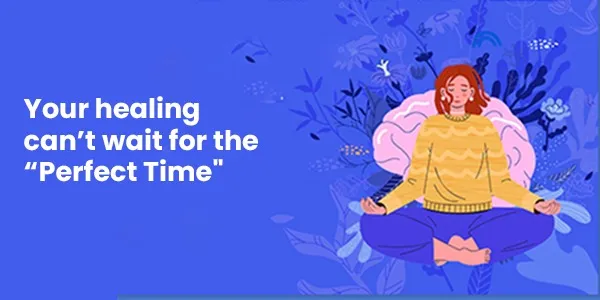Right Time to Start Therapy for Emotional Growth

Therapy isn't just for adults—emotional support from a young age can shape healthier futures.Globally, 1 in 7 adolescents aged 10–19 faces mental health disorders, with suicide as the fourth leading cause of death among those aged 15–19. Alarmingly, half of all mental health conditions begin by age 14, and three-quarters by 25. The right age to start therapy varies, but starting early fosters lasting emotional strength
Emotions Begin to Develop Early
From the moment a child begins interacting with the world, their emotional development starts taking shape. While toddlers may not express complex feelings, they do experience frustration, joy, and fear. Supporting emotional understanding in early childhood helps lay the groundwork for healthier responses later in life. Introducing simple, age-appropriate coping tools at a young age can significantly boost confidence and self-awareness.
Signs That a Child Might Benefit from Support
Every child is unique, but some behavioural patterns may hint that emotional support could be helpful. Withdrawal, extreme mood swings, frequent tantrums, or a sudden drop in academic performance are all signs worth noting. While these behaviours can be part of growing up, when they persist or affect day-to-day life, early therapy can offer structured guidance and reassurance, not just for the child but for the parents too.
Teenage Years and Emotional Complexity
Adolescence can be overwhelming. Hormonal changes, academic stress, identity struggles, and peer pressure can all pile up quickly. Many teens internalise their emotions, making it harder for parents or teachers to identify issues. Introducing therapy for teens during this phase can offer a non-judgmental space to talk, reflect, and process emotions. A teenager who learns to express and regulate their emotions early tends to carry those skills into adulthood.
Emotional Growth Isn’t Age-Specific
There’s no one-size-fits-all answer when it comes to the best age for therapy. Some children benefit from early therapy when navigating parental separation, loss, or social challenges. Others may find value in therapy during teenage years or even later in their 20s as they face decisions about career, identity, or relationships. What matters most is recognising when emotional growth is stalling and being open to help—regardless of age.
Benefits of Starting Early
Therapy during the formative years builds emotional resilience. Children and teens who engage in regular emotional check-ins tend to be more self-aware and manage stress better. Starting early also reduces the stigma often associated with seeking help, making mental health support feel like a normal part of life—just like a visit to the doctor. Early therapy doesn't mean something is wrong; it means the foundation for lifelong well-being is being built with care.
What Role Does Mindsy Play?
Mindsy understands that emotional growth looks different for everyone. Whether you're exploring early therapy for your child, seeking teen support, or just unsure where to begin, Mindsy is here to help. Through age-appropriate counselling sessions, expert professionals, and AI-assisted assessments, we make it easy to find the right support for every stage of life. Emotional wellness shouldn't be delayed—Mindsy makes it accessible, personal, and reassuring.
FAQS
Q1. What is the best age to start therapy?
A. There’s no fixed age to start therapy, but early childhood or adolescence can be ideal. Many emotional habits form by age 14, so starting young helps build long-term emotional resilience.
Q2. How do I know if my child needs therapy?
A. Signs like mood swings, withdrawal, frequent tantrums, anxiety, or a sudden drop in school performance may suggest your child could benefit from therapy. Early support helps prevent future emotional challenges.
Q3. How does Mindsy support therapy for kids and teens?
A. Mindsy offers expert-led, age-appropriate therapy sessions and AI-supported assessments for early emotional support. Whether for kids, teens, or young adults, Mindsy tailors solutions for every stage of emotional growth.
